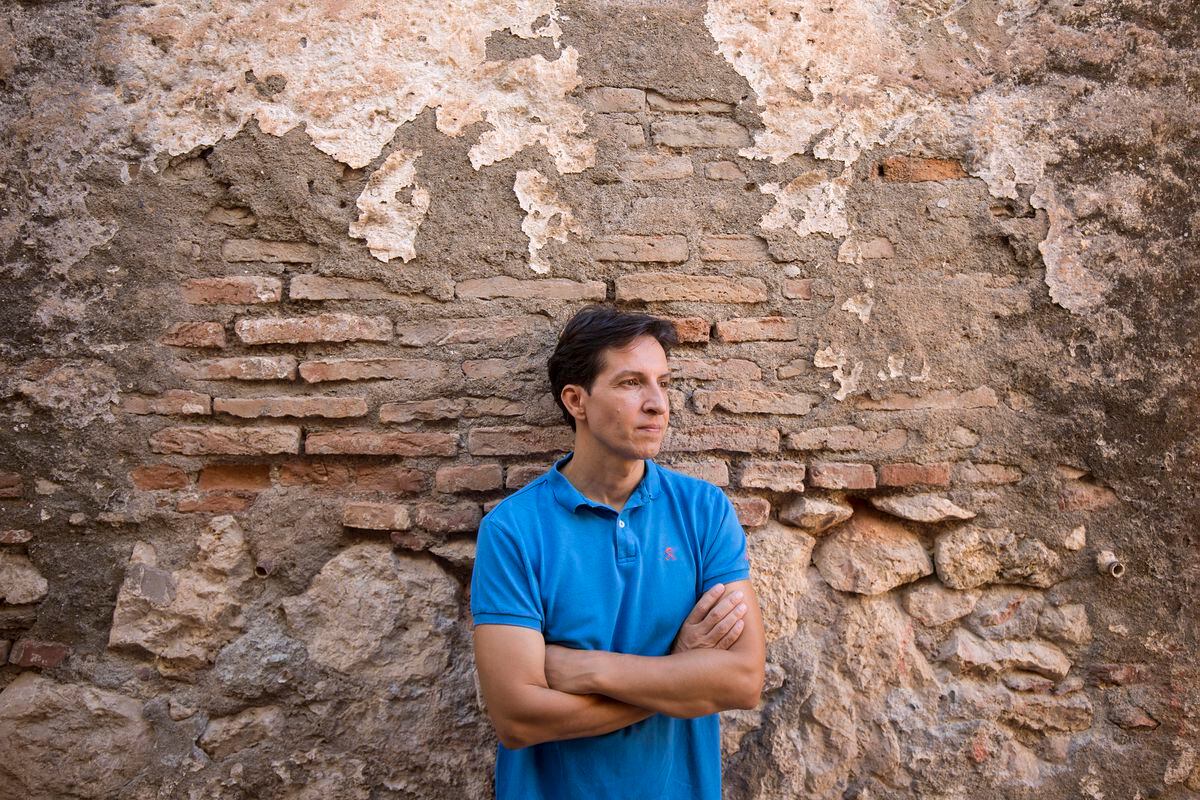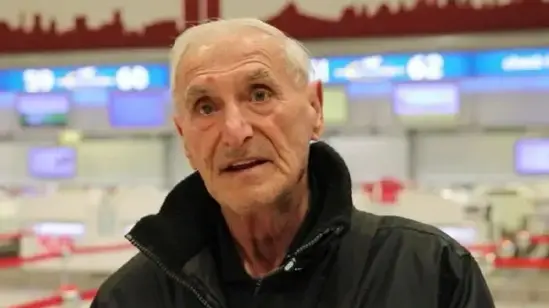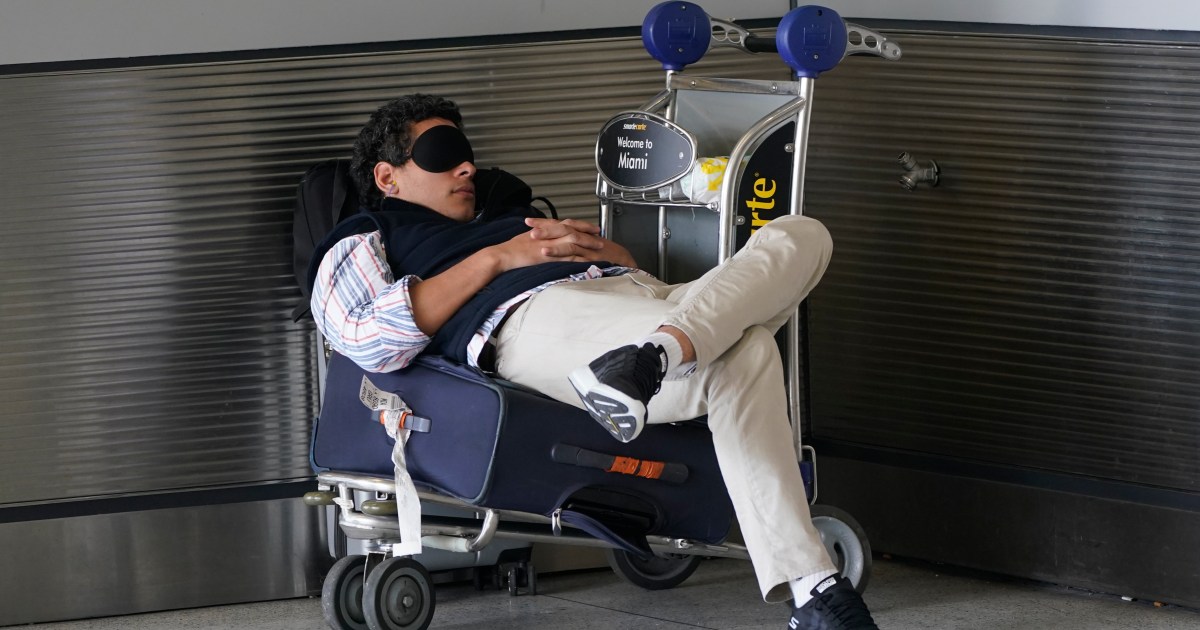Miguel Ángel Oeste has taken the most obscene and heartbreaking part of a biography —his biography— and has disguised it as beautiful literature.
He has turned the mistreatment of a child in the face of the silence of all those around him into a kind of Cinderella capable of making the prince (the audience) fall in love by getting rid of rags and dressing in the sensational clothes of a story that catches, grabs and that awakens consciousness in a society blind to pain.
I come from that fear
(Tusquets) does not deceive from the title itself, to the signature of an author refugee in the myth of the western to hide his own surname.
Which is that of his infernal father.
“For me, fear is something greasy that coils around the body, that adheres like a slug, that drags along and leaves its elements like a viscous fluid that sticks to your memory.
It is also a must.
Perhaps the only way to combat it is through writing”, confesses Oeste (Málaga, 1972) by videoconference.
He does not exhaust his definition of fear there, which marks a book and a life marked by shocks, blows, humiliation, the impossibility of relaxing because the monster always acted unexpectedly.
"Fear is sleeping without being able to sleep because of what might happen, because you have to be alert."
More information
Instructions to kill the father
Oeste does not deliver the raw abuse, but instead dresses it up with the search he has been engaged in since 2009 to trace the origins of his parents: he, a snake charmer who made his way as a cook, restaurateur, but also camel and hustlers in the stormy night world of Torremolinos when Spain looked out for fun, drugs, sex without the repression of the past;
she, a beautiful model, a rebellious point, subjected to the violence of her partner and her mother that she did not love, or at least did not protect her two children.
She too shrouded in the clouds of alcohol and addiction.
More information
Instructions to kill the father
The character that makes up Oeste in his novel not only develops as best he can in that environment, but, once an adult, undertakes the search for those origins and breaks down and processes his perplexity before the violence and silence of the environment as an objective detective, but also suicidal, of his own life.
Because finding out is colliding with evil.
To go into it is to catch fire.
Composing the book is simulating a catharsis that surely isn't, because it's impossible, even if it gives us literature as a gift.
“Literature doesn't cure, or anything.
Whoever believes that is wrong, but one tries to understand oneself, understand things and appease things”, assures Oeste.
“I think my novel is a psychological
thriller
in which the protagonist tries to detach himself from that fear.
"Books are not cathartic, but they can serve to get to know oneself better, mitigate resentment, rage, anger."
"I want to kill my father" is the initial statement of the novel and throughout it it becomes a logo, a flag that at times waves steadily, at times falls.
- Have you managed to kill him?
End him, at least from a psychoanalytic point of view?
— The father can never be killed because he is part of one and what one tries is not to hurt oneself more.
The idea "I want to kill my father" plays like a kind of mantra, of repetition so that the narrator can survive.
If not, he could not survive.
It is a survival story of the narrator's own weakness.
The portrait of the neighborhood Malaga of the eighties, which is nothing but the Spain of the eighties, leaves us a picture of the silence that surrounded the mistreatment.
"Violence then remained within the limits of your own home, it was normalized, allowed, and that created a state of mind in a child that is what I try to reflect."
For me, fear is something greasy that curls around the body, that adheres like a slug (...) It is also a necessity
In his book, in fact, there are two books: the story of that boy and his detective investigation, his approach from different angles and testimonies to a polyhedral reality that he builds with a firm hand.
"I have tried to balance the search, the journey, with introspection, reflection and the game of literature itself," he says.
“In the end, I think my book hybridizes genres such as
thriller
, horror, testimonial.
In the end, a child is someone who is discovering things for the first time, has no handles and fears are brutally amplified.
The fear is not of being hit, for example, but of what might happen.
That's why I talk about
thriller elements
psychological and horror.
In childhood it leaves a mark and there it is.
My narrator is someone who is constantly reeling, who is insecure, who needs that search to keep moving forward.
Literary heir to the French Delphine de Vigan, to face this book he has avoided reading other hard models of autofiction, such as the one represented by Karl Ove Knausgård "so as not to be influenced".
But his most resounding cultural reference is the western, which has given him his adopted surname and which he defines as "the meaning and idea of conquering something, conquering happiness, perhaps through writing, perhaps a chimera, something symbolic”.
Oeste, who wrote the story of a complicated adolescence in the third person in his previous novel,
Arena,
has chosen this time to do it in the first person.
“I started in the third person and when I was 40 or 50 pages old I saw that it was a fake character.
I decided to show my face.
I wanted to convey a raw, naturalistic language, so that people would say: "Holy shit, what is this?"
And I went to the bone, to the total nude.
Maybe my father has made me a writer.
Because if he hadn't written, who knows."
The abyss of an unwritten life hangs in the air like a horror even greater than what he has written.
A work that, as he concludes, is “a book in progress”.
Because “writing calms me down, calms me down, takes me to my center in the face of my insecurity, my weakness.
I don't understand life without writing.
Subscribe to continue reading
read without limits
Keep reading
I'm already a subscriber







/cloudfront-eu-central-1.images.arcpublishing.com/prisa/JFSN4SO2IVAJ5EAUCRKFSUYKTM.jpg)
